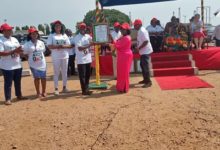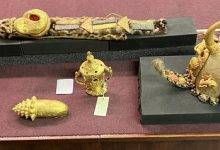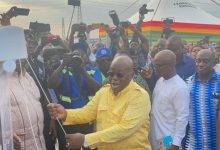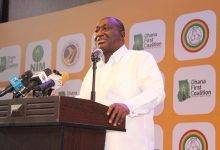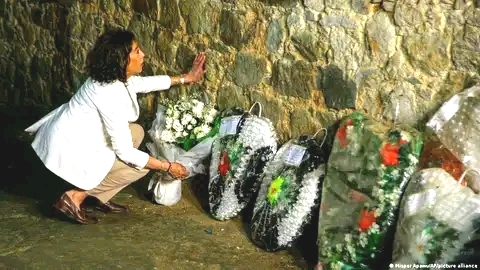
It was a moment of reflections and solemnity as the Vice President of the United States of America (USA), Ms Kamala Harris, paid a historic visit to the Cape Coast Castle as part of her three-day state visit to Ghana.
The visibly distraught Harris could not hold back her pain and grief as she was made to relieve the pain and torture millions of African slaves shipped through the slave castle to Europe and the Americas were made to go through.
Accompanied by her husband, Douglas Emhoff who is also the second gentleman of US, they were given a tour of the dungeons and the tunnel that led to the door of no return.
Constructed in 1664 as a fort by the Swedes, it was redeveloped into a castle by the English who took over from them.
The Cape Coast Castle has become iconic for its role in the dastardly Trans Atlantic Slave Trade which witnessed nearly 30million people shipped from Africa to America and the Caribbean.
It is estimated that more than half of the total number of black slaves sent out to the new found land were shipped through the Cape Coast Castle.
Her visit adds up to the tall list of high profile personalities from the US to have visited the facility including: President Obama, Michelle Obama, Nancy Pelosi, the Black Congressional Caucus and Melanie Trump.
In an emotionally delivered message after the tour, Ms Harris said the horror of what happened at the Cape Coast Castle must always be remembered.
She said it was history that must not be denied but must be taught and learned, stressing that “It cannot be denied. It must be taught. History must be learned.”
The visiting US Veep who could not fathom why humans would subject their fellows to such horror and cruelty said the world must be guided by what was also known to be the history of slavery.
Earlier, Ms Harris and her delegation, were welcomed at a brief and colourful ceremony held at the Emintsimadze Palace of the Oguaa Traditional Area.
Some residents of Cape Coast gathered around the precinct of the palace to catch a glimpse of the US Vice President.
Osaberima Kwesi Atta II, Paramount Chief of the Oguaa Traditional Area, in his remarks, mentioned that, there were plans to construct a slavery museum in Cape Coast and appealed to the United States to be part of such a project.
“This will tell the whole story about the African Trans-Atlantic Slave Trade,” he said.
He indicated that, Cape Coast had played and continues to play key roles in the nation’s development process.
Osaberima Kwesi Atta II further noted that the town had hosted visits of leaders from the United States due to its history.
He, therefore, appealed to the Vice President of the United States of America to consider organising a reciprocal visit for members of the traditional council to the United States.
In her remarks, the US Vice President commended members of the Oguaa Traditional Council for the reception accorded them.
On the request by Osaberima Kwesi Atta II for a reciprocal visit to cement the friendship that had existed between the area and the White House, she explained that, she had appointed the US Ambassador to Ghana as a liaison to act on the request.
She said, it was a prerequisite for humanity to learn from history and asked that history must be taught with the understanding that it would not only be of the past alone but “Our destiny and our future.”
“We learn from it in a way that will make the ancestors proud and also understand the broad shoulders on which we stand,” she indicated.
She commended Ghana and other African countries for the successes chalked in various fields of endeavour.
Ms Harris further commended the country for the work being done in the educational front, saying, “Education should be the greatest priority of all nations.”
She said: “That includes using education as a way to help people around the globe understand the connections and interconnections and inter dependence by extension”.
BY CLIFF EKUFUL & DAVID O YARBOI-TETTEH

